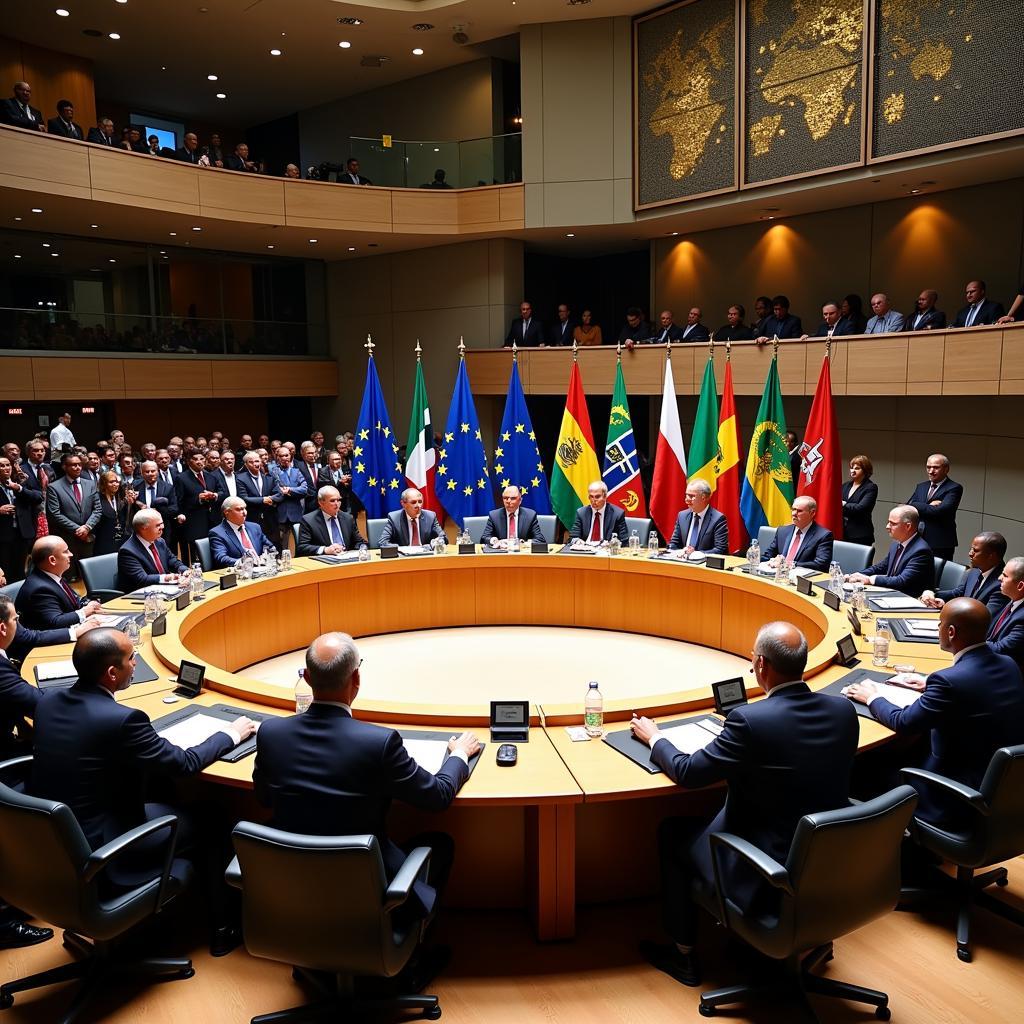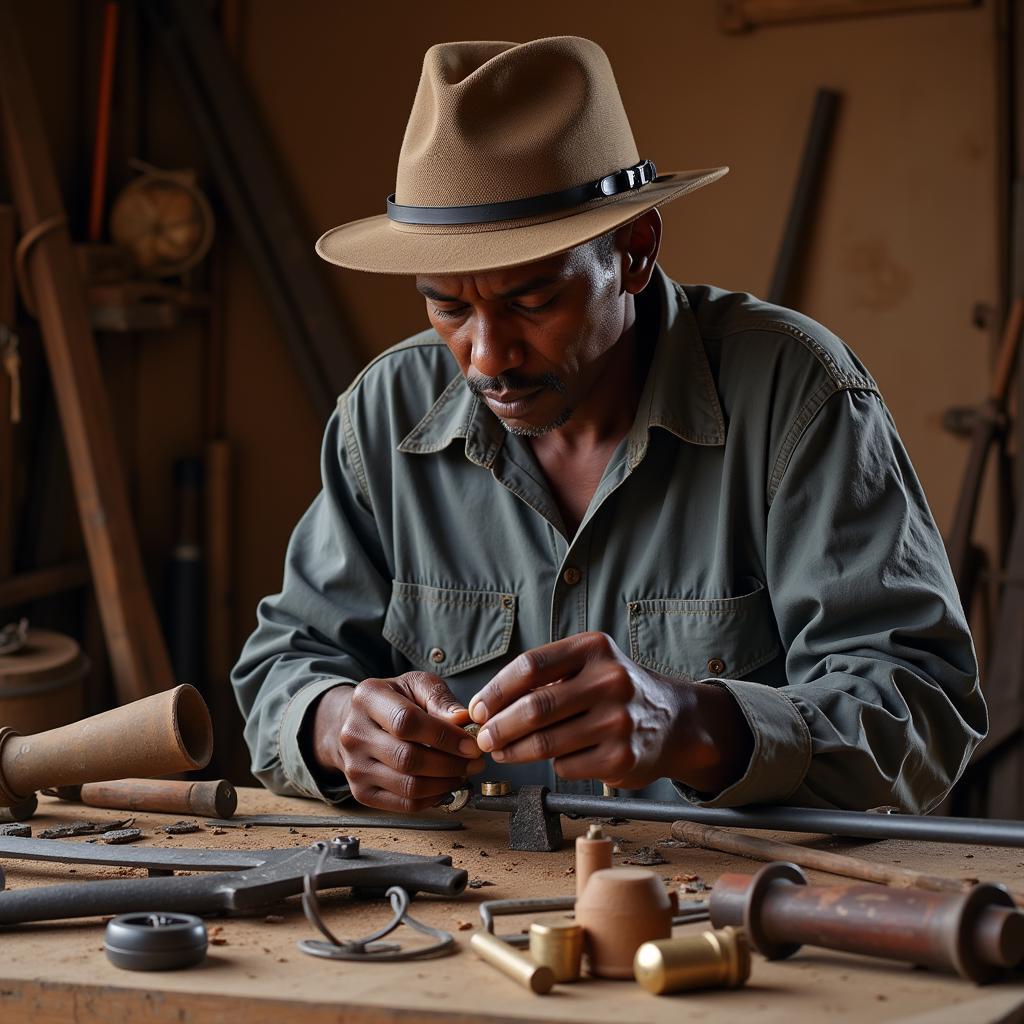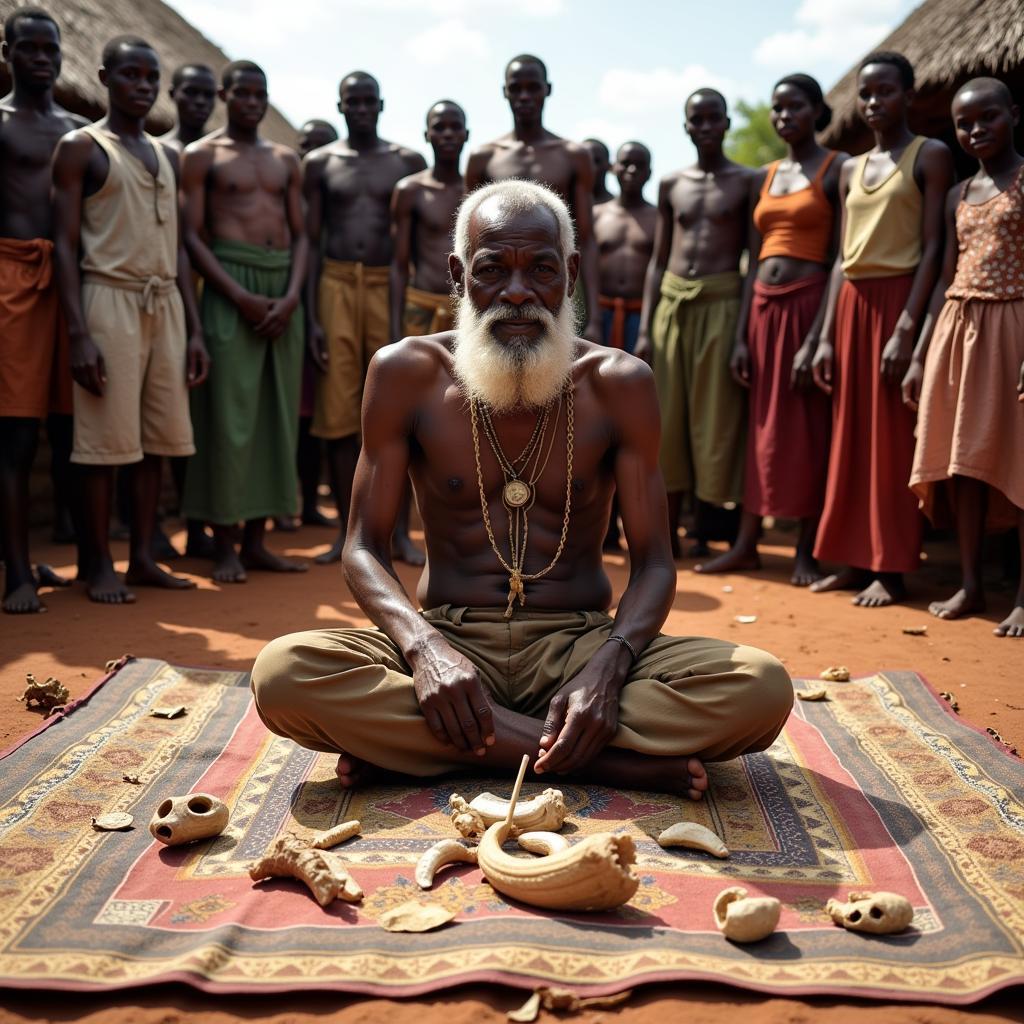Discovering the Rich World of African Crafts Names
African Crafts Names are a window into the diverse cultures and artistic traditions of the continent. From intricately woven baskets to boldly patterned textiles and hand-carved masks, each craft tells a story and carries a unique significance within its community. Let’s delve into the fascinating world of African craft names and explore the meaning and history behind these beautiful creations. 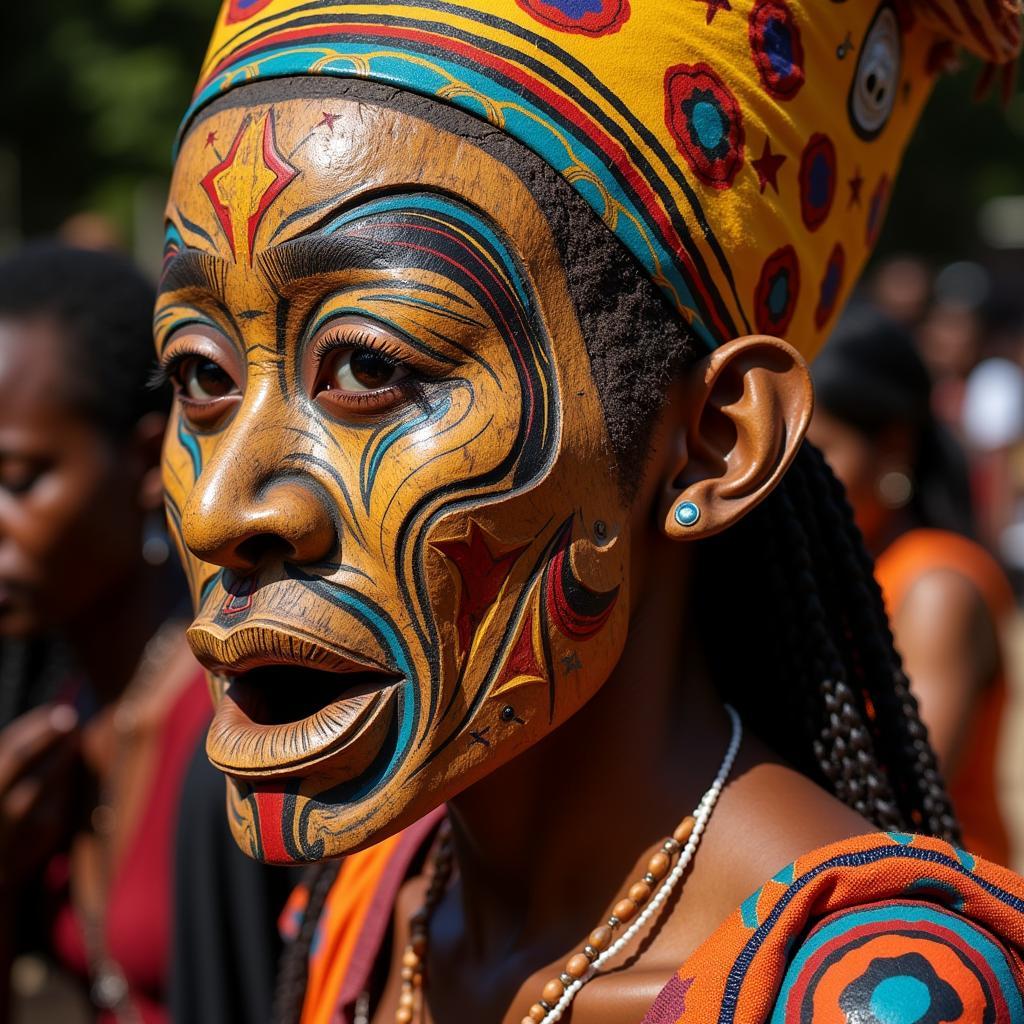 African Mask Used in Traditional Ceremony
African Mask Used in Traditional Ceremony
Unmasking the Meaning: African Mask Names and Their Significance
African masks hold a special place in the continent’s artistic heritage. Their names often reflect the spirits they represent, the ceremonies they are used in, or the roles they play within a community. For instance, the D’mba mask of the Baule people of Côte d’Ivoire represents a beautiful woman and embodies ideals of feminine beauty and moral strength. Other masks might depict ancestors, deities, or animal spirits. Learning about these names helps us understand the rich symbolism and cultural context behind these powerful objects.
Many resources can help you explore different aspects of African cultures. You can find interesting articles on african culture articles. Understanding the tribes and their traditions will give you deeper insights into the significance of different crafts. Check out african indigenous tribes for more information.
Exploring Specific Mask Names Across Different Regions
Different regions of Africa have unique mask-making traditions and naming conventions. In West Africa, the Yoruba people have a rich tradition of mask carving, with masks like the Egungun representing ancestral spirits and the Gelede honoring female power. Meanwhile, in Central Africa, masks of the Pende people often feature exaggerated features and bold designs, reflecting the spirit world’s complexities.
What are some common names for West African masks? Many West African masks are named after deities, spirits, or the ceremonies they are used in, such as Egungun, Gelede, and Ibeji.
Beyond Masks: Exploring Other African Crafts Names
While masks are iconic, African crafts extend far beyond these powerful objects. The continent boasts a vast array of artistic creations, each with its own unique name and cultural significance. Let’s explore some of these fascinating crafts:
- Textiles: From the vibrant kente cloth of Ghana to the intricate bogolanfini mud cloth of Mali, African textiles are renowned for their bold patterns and symbolic meanings. These names often reflect the dyeing techniques used, the region of origin, or the patterns’ specific significance.
- Basketry: Intricately woven baskets are essential to daily life in many African communities. Their names often reflect their function, the materials used, or the specific weaving techniques employed.
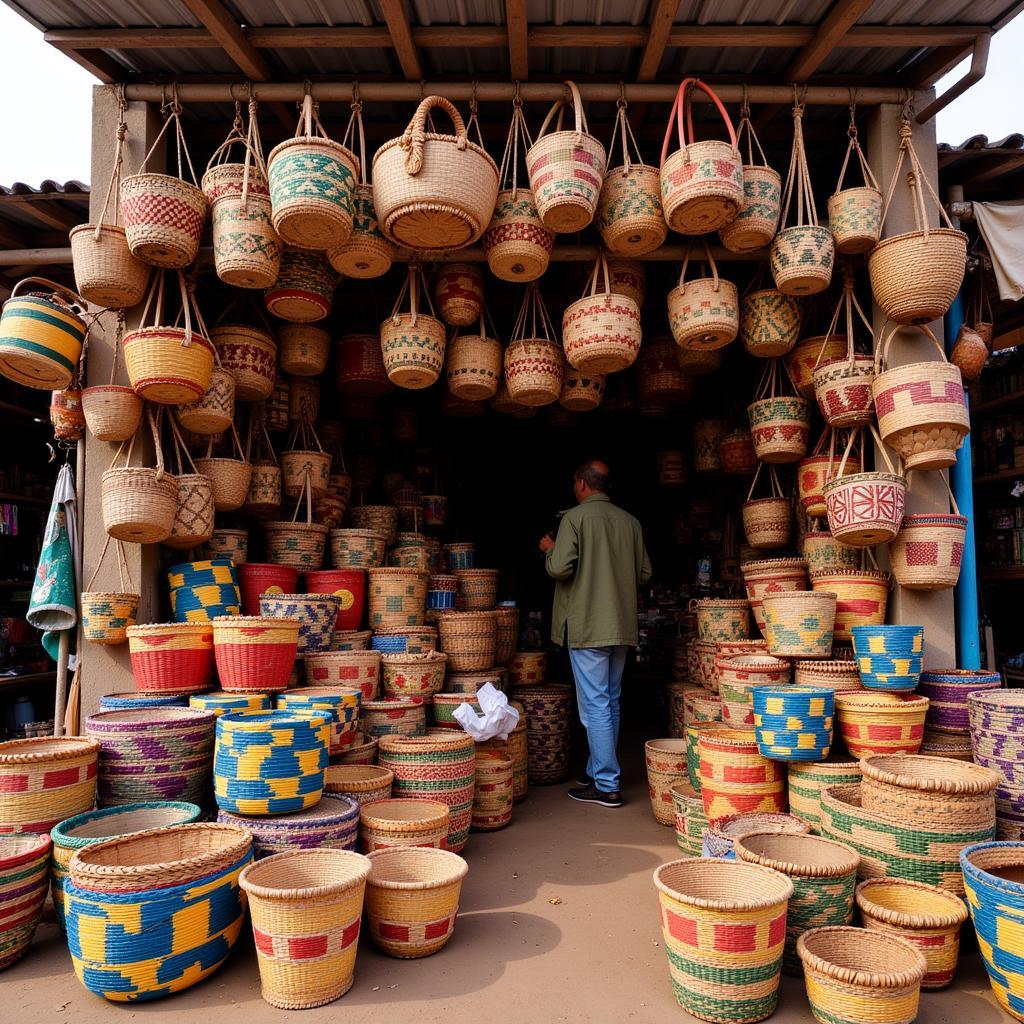 African Woven Baskets in a Marketplace
African Woven Baskets in a Marketplace - Pottery: From utilitarian cooking pots to decorative vessels, African pottery reflects the continent’s diverse artistic styles. The names of these pieces often relate to their function, the region they come from, or the specific techniques used in their creation.
Where can I find authentic African djembe drums for sale? Check out this link: african djembe drums for sale. For a comprehensive overview of African countries and their cultures, visit african countries wiki.
The Language of Crafts: Understanding Naming Conventions
The names of African crafts often reflect the local languages and dialects spoken in the regions where they are created. This adds another layer of meaning to these objects, connecting them directly to the cultural heritage of the communities that produce them.
What are some common materials used in African crafts? Materials like wood, clay, textiles, beads, and natural dyes are frequently used in creating various African crafts. These materials contribute to the unique character and aesthetic of the crafts.
Preserving Cultural Heritage: The Importance of Knowing African Crafts Names
Learning about African crafts names is essential to preserving the rich cultural heritage of the continent. By understanding the stories and meanings behind these names, we gain a deeper appreciation for the artistry and traditions they represent. 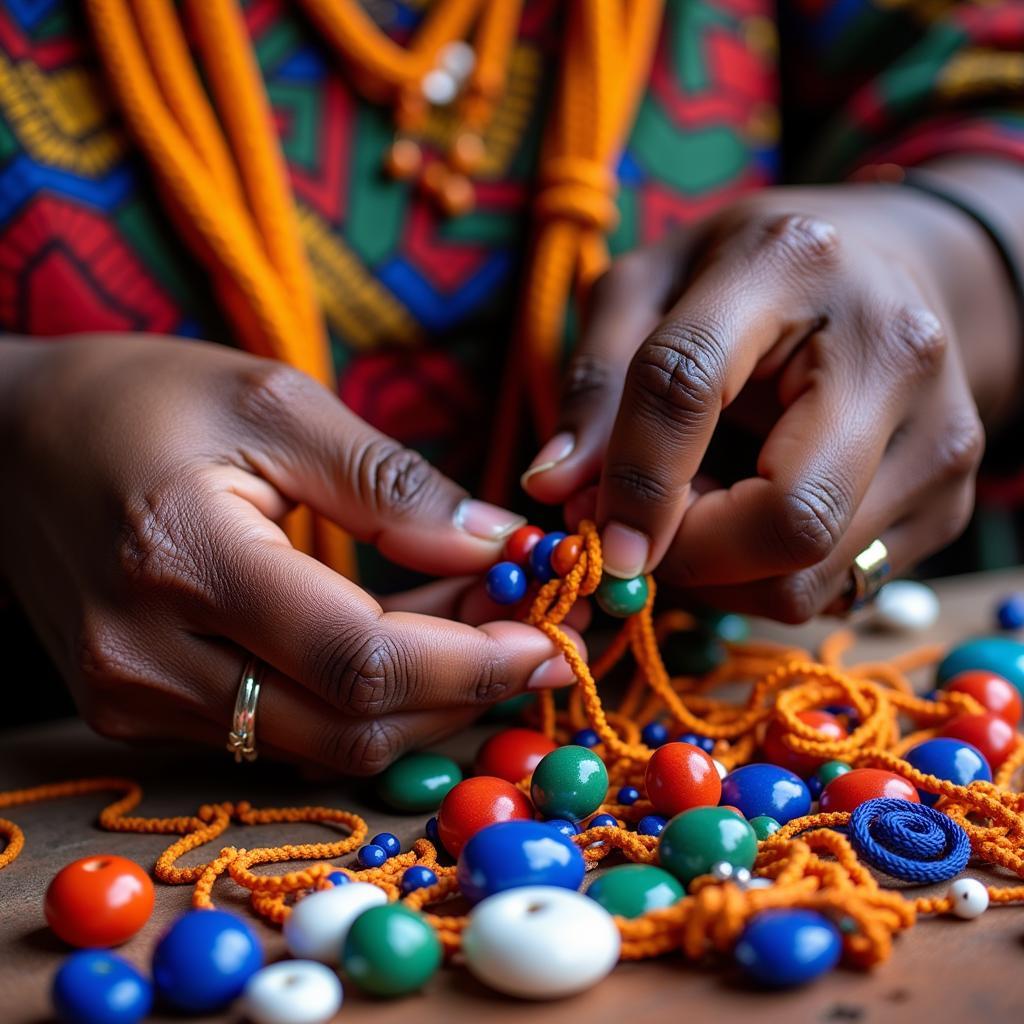 African Woman Creating Intricate Beadwork
African Woman Creating Intricate Beadwork
Dr. Anika Olumide, a renowned anthropologist specializing in African art, explains, “African craft names are more than just labels; they are keys to understanding the rich cultural tapestry of the continent. They connect us to the history, beliefs, and traditions of the people who create these beautiful objects.”
Professor Kwame Asante, a historian of African art, adds, “The names of African crafts often hold deep symbolic meaning, reflecting the spiritual beliefs, social structures, and artistic expressions of the communities that produce them.” Knowing these names allows us to appreciate the cultural significance embedded within each piece.
In conclusion, African crafts names provide a fascinating glimpse into the diverse artistic traditions of the continent. From masks and textiles to baskets and pottery, these names carry deep cultural meaning and connect us to the rich heritage of Africa. By learning about these names, we can gain a deeper appreciation for the artistry and traditions they represent.
Frequently Asked Questions about African Crafts Names:
- What do African mask names often signify? They often represent spirits, ceremonies, or social roles.
- Why are African textile names important? They often reveal dyeing techniques, regions of origin, and symbolic patterns.
- How do African craft names reflect cultural heritage? They often utilize local languages and dialects, connecting them directly to the communities of origin.
- Where can I learn more about African crafts? You can find numerous resources online and in museums dedicated to African art and culture.
- Why is it important to preserve knowledge of African craft names? It helps to protect and appreciate the rich cultural heritage of the continent.
- Are there specific resources for learning about individual craft names? Yes, many books and websites specialize in specific African cultures and their art forms.
- How can I support African artisans and their craft traditions? Consider purchasing authentic African crafts directly from artisans or reputable organizations that support fair trade practices.
If you need any assistance, please contact us:
Phone: +255768904061
Email: [email protected]
Address: Mbarali DC Mawindi, Kangaga, Tanzania.
We have a 24/7 customer service team ready to assist you. You can also check out african lady clipart on our website.
